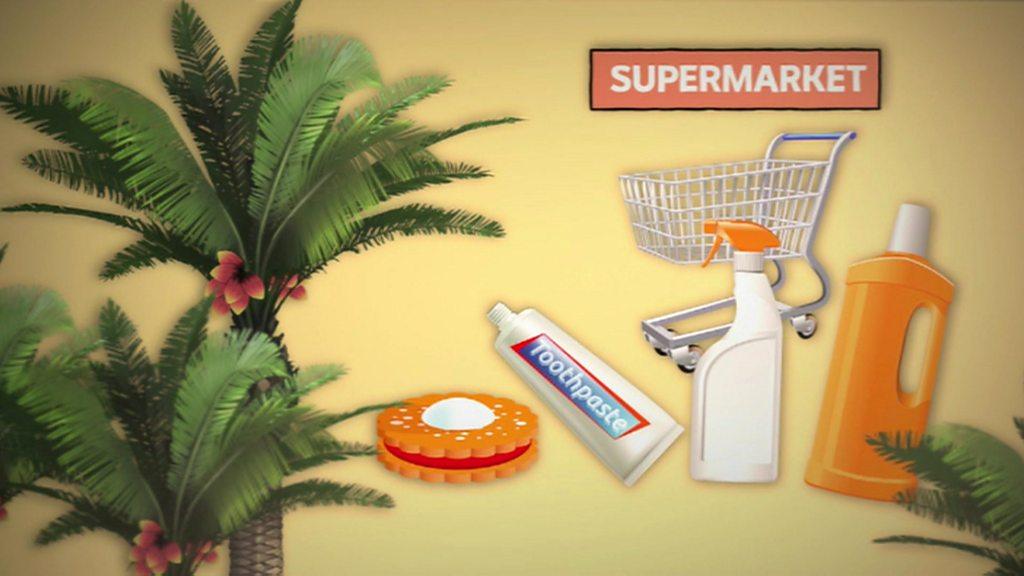Clever orangutan turns leaves into medicine in the wild
- Published
- comments
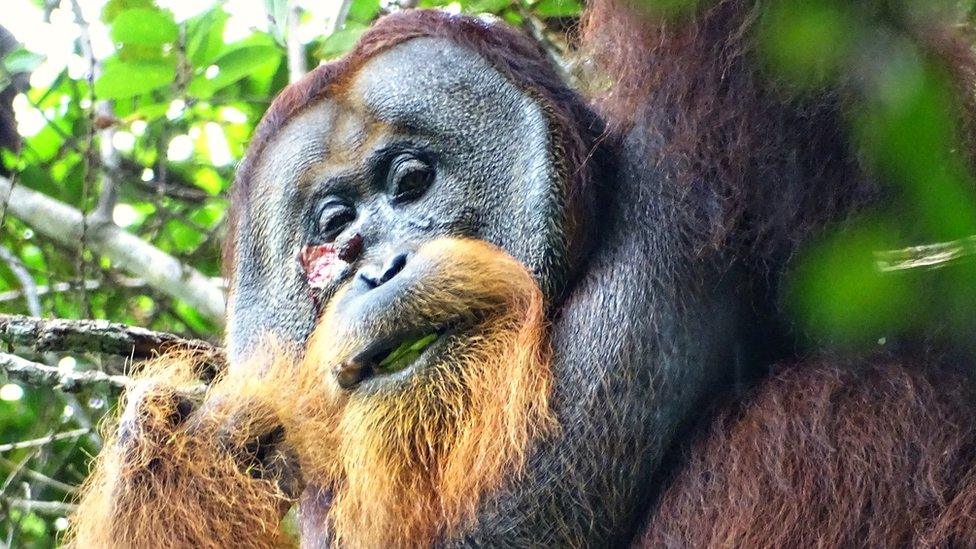
Rakus the orangutan was spotted creating paste out of a plant used to treat disease
When our pets get hurt, we can take them to the vet to help them get better - but what do wild animals do when they're poorly?
One clever orangutan in Indonesia has shocked scientist with his solution.
Rakus the Sumatran orangutan was spotted creating a paste out of plants and putting it on a large wound on his cheek.
Within a month, the sore closed up and his cheek was as good as new!
This is the first time scientists have seen an animal in the wild treating an injury with a medicinal plant.
They think Raku's human-like behaviour could come from an ancestor we share with apes.
The researchers in Indonesia's Gunung Leuser National Park believe Rakus was hurt in a fight, leaving him with a nasty wound.
After spotting him with the injury they watched as he chewed a plant called Akar Kuning, to create a paste to apply to his wounded cheek. Humans use the plant locally to help treat malaria and diabetes.
The researchers also saw Rakus resting for much longer than usual - more than half of the day - suggesting he was trying lots of things to get better.
Orangutans are resourceful creatures. They've been spotted making gloves out of leaves to protect themselves when handling prickly fruit, and they make a new nest to sleep comfortably in every night!
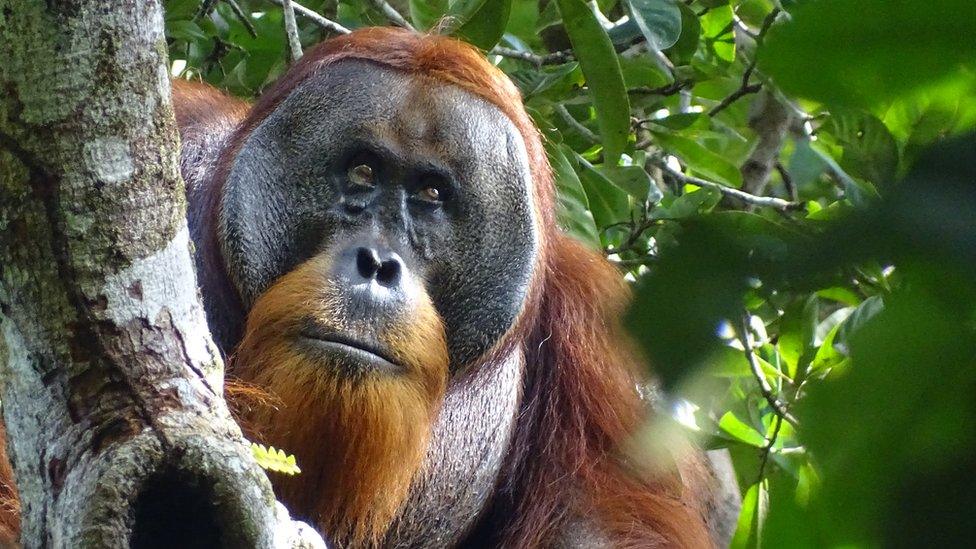
After a month, the wound on Rakus's cheek was healed!
Within five days the wound had closed completely.
The scientists believe Rakus knew he was applying medicine because orangutans rarely eat this plant, and because of how long he spent tending to his injury.
Experts had already found plants that can be used as medicine in the poo or orangutans, but had never seen a wild animal applying a plant to a wound before.
"It could be that he accidentally touched his wound with his finger that had the plant on it. And then because the plant has quite potent pain relieving substances he might have felt immediate pain relief, which made him apply it again and again," said biologist Dr Isabella Laumer, lead author of the research.
The scientists will now keep a close eye on some of Rakus' friends to see if they have the same medical skills that Rakus showed.
"I think in the next few years we will discover even more behaviours and more abilities that are very human-like.
"We are more similar than we are different," said Dr Laumer.
- Published24 March 2022
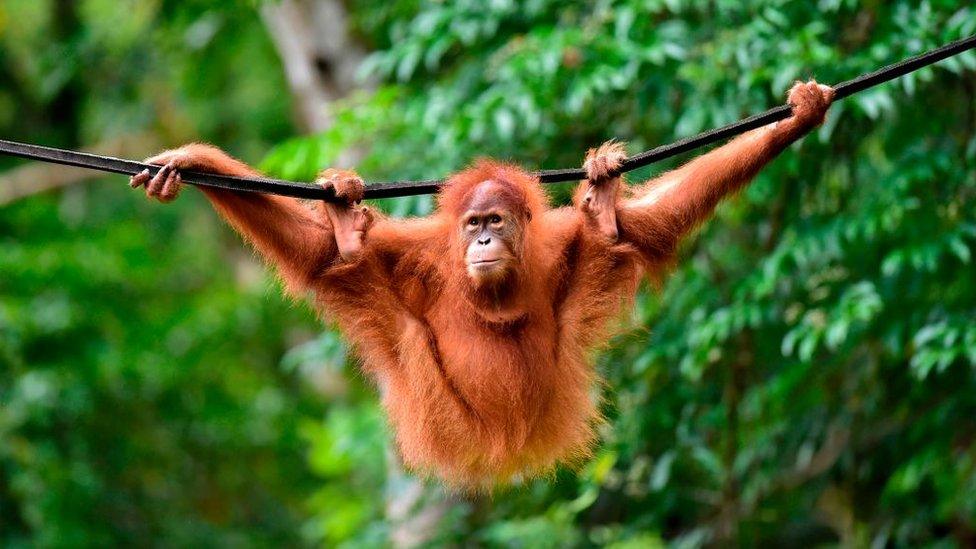
- Published2 July 2023
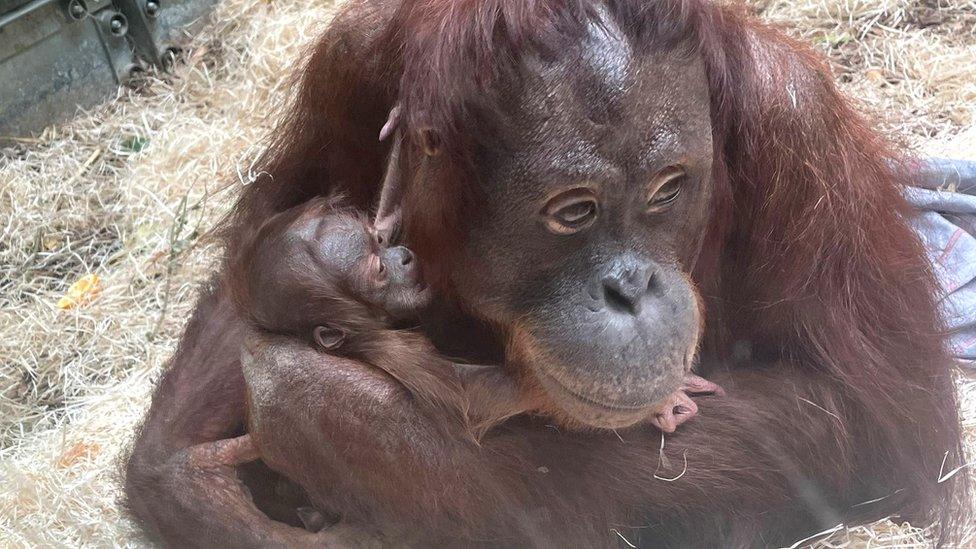
- Published6 April 2017
